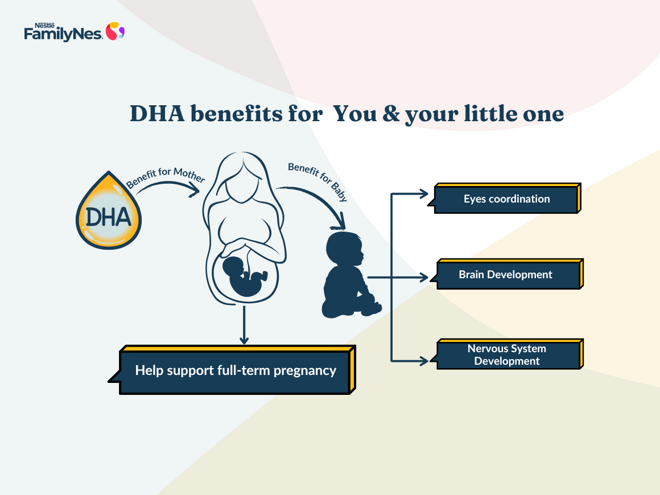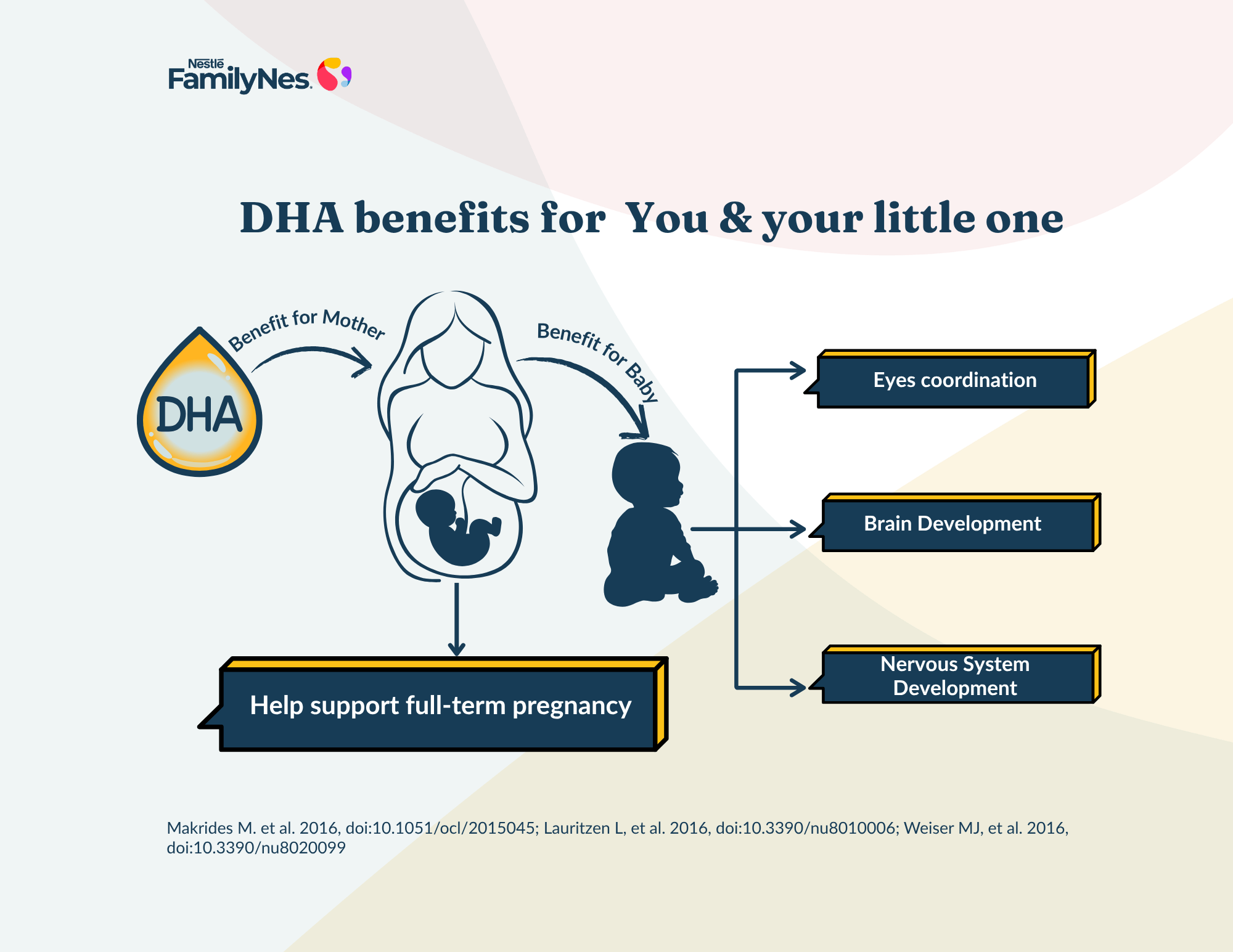
DHA & Motherhood: A key dietary Component For You And Your Baby
Pregnancy isn’t just a phase, it’s a life-altering journey that reshapes your body, mind, and soul. Every mother’s path is beautifully unique, but one thing remains universal: the need to nourish both yourself and your growing baby with care. That’s where one powerful nutrient steps into the spotlight—DHA (docosahexaenoic acid)—an omega-3 fatty acid that plays a starring role in your baby's brain and nervous system development.
But why is it so important?
DHA is essential for your general health and, in particular, your baby's brain development. During pregnancy, when you boost your omega-3 consumption, you are directly nourishing the baby, as this important nutrient is delivered through the placenta and later through breast milk (after delivery).
How will it benefit you as a mother?
Help support full-term pregnancy: May reduce the chances of premature birth risk1
How is it beneficial for your baby?
- Support the baby’s normal brain development: Aids in brain development as DHA supports neurogenesis (process of nerve cells formation in the brain), synaptic plasticity (brain's ability to modify the strength of connections between neurons), and cognitive functions like memory and learning.2, 3
- Helps development of eyes: DHA plays a crucial role in the optimal development of the brain and eye of the baby. It's a major component of the retina, the light-sensitive tissue at the back of the eye and supports its development and function. DHA is essential for developing visual acuity (sharpness of vision) and development of other visual functions, such as color vision and the ability to distinguish fine details.2
- Supports development of nervous system: DHA helps develop and support the motor cortex, the part of the brain that controls voluntary movements. This supports hand-eye coordination, which is important for fine motor skills like reaching or grasping objects.4
Half of the brain DHA is accumulated during the gestation period,. The fetus and placenta can't make enough DHA on their own to support the baby's fast-growing brain. That's why the DHA from the mother's diet becomes an important factor for the fetal brain development.
Simply put, your baby's development is influenced directly by what you eat!
However, compared to other countries, the Indian diet is predominantly influenced by vegetarian and vegan food choices, which might influence the low intake of DHA in the Indian population.5
How to keep your DHA levels in check?
Here are some foods rich in DHA:6
- Fish: Salmon (rawas), tuna (soorai or kera), and sardines are excellent sources
- Nuts & Oils: Walnuts, almonds, peanuts, and cashews can boost your DHA levels, in addition to other vitamins and minerals such as calcium or antioxidants
- Oils like flaxseed, coconut, or canola oil also contain omega-3
Besides food, DHA can be acquired through supplements to fill nutritional gaps. Multivitamins with DHA are designed to significantly increase the levels of this fatty acid, along with other vitamins and minerals, for optimal child development and to support the mother's well-being.

More than just pregnancy benefits
DHA is one key piece of a big puzzle, along with a balanced diet, adequate hydration, lots of rest, and low-impact exercise. Don’t forget to add those DHA-rich foods or supplements to your diet. They can do wonders for both you and your baby and help you thrive through every stage of the motherhood journey.
This content is not a substitute for professional medical advice. Please consult your healthcare professional
References
- Makrides M. Understanding the effects of docosahexaenoic acid (DHA) supplementation during pregnancy on multiple outcomes from the DOMInO trial. OCL. 2016;23(1):D105. doi:10.1051/ocl/2015045
- Lauritzen L, Brambilla P, Mazzocchi A, Harsløf LBS, Ciappolino V, Agostoni C. DHA Effects in Brain Development and Function. Nutrients. 2016;8(1):6. doi:10.3390/nu8010006
- Weiser MJ, Butt CM, Mohajeri MH. Docosahexaenoic Acid and Cognition throughout the Lifespan. Nutrients. 2016;8(2):99. doi:10.3390/nu8020099
- Li J, Pora BLR, Dong K, Hasjim J. Health benefits of docosahexaenoic acid and its bioavailability: A review. Food Sci Nutr. 2021;9(9):5229-5243. doi:10.1002/fsn3.2299
- Garg P, Pejaver RK, Sukhija M, Ahuja A. Role of DHA, ARA, & phospholipids in brain development: An Indian perspective. Clinical Epidemiology and Global Health. 2017;5(4):155-162. doi:10.1016/j.cegh.2017.09.003
- Ahire RD. Supplementing with DHA and ARA for infant’s brain and vision development. IJTI. 2023;1(2):iv-vii. doi:10.55522/ijti.V1I2.0002


